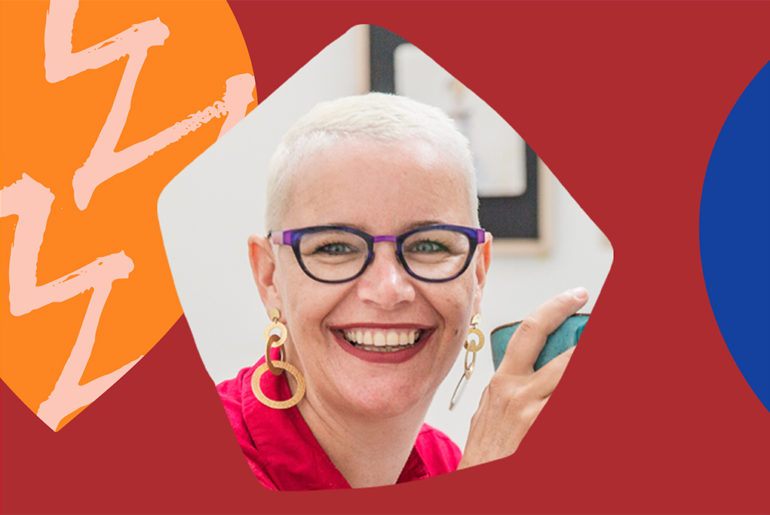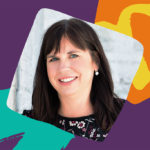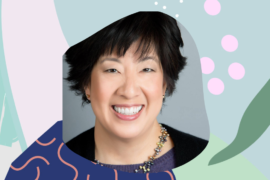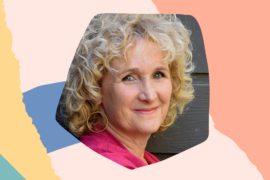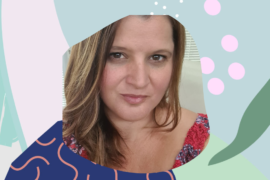Key Takeaways
- Why Rianne walked away from her marketing business to take a sabbatical — and how a change of plans led her to social entrepreneurship.
- The aha moment that finally showed Rianne how to use her background in sales and marketing to uplift the planet and humanity.
- How Rianne found her business partner on another continent and launched her first membership site.
- Why “I don’t know” is a fear-based answer and how to overcome it.
Free Give
 FREE Guide – Launch & Grow a Profitable Membership Site
FREE Guide – Launch & Grow a Profitable Membership Site
Ready to reclaim your time and attract more monthly paying customers? Our step-by-step guide will show you how to build a membership site that turns your passion into recurring profit. Click here to download!
Memorable Quote
I truly believe that the ‘I don’t know’ is a fear-based answer because we’re afraid to speak from our hearts.” – Rianne Klein Geltink
Episode Resources
- Rianne Geltink’s Facebook Page
- Impact Business Base
- H3ROES
- The 5 Second Rule: Transform your Life, Work, and Confidence with Everyday Courage
- Female Entrepreneur Association
Transcript
Read The Transcript
Shelli: Rianne Klein Geltink, welcome to the It’s A TRIBE Thing Podcast. My friend, how are you doing?
Rianne: I am great. Thank you so much for having me. I’m so excited.
Shelli: Oh my gosh, are you kidding me? Your story, when I heard your story, it lit me up because this is my jam and my lane too so I’m really, really excited to share you and your story with our amazing community of TRIBErs and the world at large. So, I wanted to start by giving you the opportunity to tell us your backstories or where you came from, where you were before you’re this incredible entrepreneur that you are now, and how the position you’re in now came to be.
Rianne: Yeah. Okay. So, I have a bachelor’s in marketing and I’ve always been in commercial positions. The first decade I worked for a tradeshow organization. I worked my way up from a market researcher all the way to marketing director and then left about a decade ago and started my own management consulting firm with a business partner and we serve corporate clients and we were all about customer centricity. So, all about how a company should put the customer at the center of everything that they do and then from there, grow and love on your TRIBE and grow your business. But we were serving mostly, no but, this company is doing great. It’s still doing great. It’s called Heroes because we believe our customers were heroes and pretty much everybody can be a hero. But we did it for about a decade and we served corporate clients who are just ordinary for-profit companies, medium to large-size, 200 to 500 people working for them. But about two years ago or a little bit longer than two years ago, in the summer of 2016, I had this itch and we all have those, right?
Shelli: Always start with, “I had an itch.”
Rianne: It’s like, “Eh, I don’t know. I don’t if it’s I don’t like it as much anymore.” I wasn’t as inspired as I used to be. It was also the summer I turned 40, so maybe it’s my midlife crisis. I have no idea. Anyway, I ended up at one night in a bar with a friend and I was just complaining. I was complaining to them I didn’t like my clients anymore and I wasn’t feeling as excited about stuff anymore. And he asked me the magic question, “Rianne, what do you want in your heart?”
Shelli: Oh, I love it.
Rianne: I was like, “I don’t know.” I’m a very, very rational thinker. I do everything with my head and that question completely threw me off. He says, “What do you want in your heart?” and I said, “I don’t know.” He says, “Yes, you do,” and then I looked at him and I said, “I want to travel,” and he says, “Where do you want to go?” I said, “Australia.” He goes, “Okay. When are you leaving?” I’m like, “I can’t. I have a company. We have people working. I can’t. It’s just impossible.” He says, “Bullshit. You’re single. No kids. Yes, you run a business, but that’s easily figureoutable as Marie Forleo says.” And so, basically, I drove home that night and obviously, that got in my head. In the next day, I wiped my agenda clean, and I created three large post-its, I set up large white sheets of paper in my living room, and I took out markers and I said, “Okay. Keep calm and plan your road trip to Australia.” And on that big like sheet of canvas or three sheets of canvas, I just stuck all the post-it notes about all my objections but also questions like everything that was in my head about, okay, could I take a year off? Could I do this? And then I dumped my brain on that thing and it was like a whole wall of post-it notes of everything like how long was I going to travel? How was I going to travel? What would I do with the business? What would I do with my house? All these types of questions.
And then after an hour or so, I just sat on my couch and I looked at it. I was like, “Fuck it, I’m going.” So, three days later I booked the ticket and I booked the tickets for six weeks later. So, I had six weeks to sort out my life and my business for me to be able to leave on a year-long sabbatical and that’s what we did. I had a good heart-to-heart with my business partner and we arranged some stuff in our business and it all worked and just in January 2017, I left on a journey to Australia. Well, and then for some reason to Australia, I fricking hated it. I hated it.
Shelli: Oh, no way, after all that.
Rianne: Yes. I was traveling by myself. I flew to Perth. I am Dutch originally. I’m from the Netherlands. The Netherlands is the second most densely populated country in the world. Australia and that particularly west Australia is not. It’s very, very, very desolate, very empty.
Shelli: It’s very hollow and echoey compared to where you came from in terms of people.
Rianne: Yes. It’s like, okay, this story, one day I turned to Tinder to meet people. I was desperate for meeting people. I turned to Tinder and literally, the app said, “I’m sorry. There’s nobody in your area.” Are you fricking kidding me? Anyway, I flew to Perth. I bought a car with a rooftop tent and I started to travel and camp but I was so lonely. It was the loneliest period of my life. It lasted seven weeks and by the end, I was crying every day in my tent by myself and just feeling miserable. And then I had a good friend from home on the phone and she said, “What the hell are you doing?” I’m like, “I have this plan to drive around Australia.” “Yeah. Shut up. This was supposed to be fun.” So, eventually, I decided to leave and then my journey got me to Bali because I said, “I’m not going to stop this sabbatical because I would be exactly where I was when I left so I’m not going to stop.” So, I went to Bali and in Bali, basically, I discovered two things and this was last year on March 2017, I discovered two things. And number one was what something they call digital nomadism. That’s basically these group of people who have created a completely location-independent business and then use that freedom to travel wherever they want. And the second thing was something called social entrepreneurship and social entrepreneurship is basically anybody who chooses to build a for-profit company, but the profit is a means to an end and the end is making massive sustainable environmental impact in the world.
Shelli: I just got goosebumps.
Rianne: Yeah. Me too. And when I discovered that, I met a few social entrepreneurs in Bali. They were westerners but, yeah, I met them and that was my lightbulb moment. I was so speechless like, “Oh my gosh,” because at that point in time, I realized that and I say that to people now, I realized finally that for the past 20 years, I’ve been working for 20 years, for the past 20 years I basically always was asking what the bigger purpose of making money was, beyond what you need.
Shelli: So, it was always in you. This was always in you.
Rianne: It was always, yeah. My dad was in the Army. My mom’s a teacher. I guess I come from this, you know, serving background. I’m the only one. My sister and I are in the commercial industry but, yeah, I come from a different background and basically, I’ve always been questioning why, long-term shareholder value, why? What’s the purpose? And then when I discovered social entrepreneurship, I figured out, “Okay. That’s the purpose. The purpose is to uplift our planet and to uplift humanity, all of humanity, not just a happy few.” And then I started to read. Basically, I was like this was mid-March and I start to connect with these few social entrepreneurs that were there. They were doing amazing things and I realized I have to do something here. I have to figure out how to help them. My 20 years of experience in sales and marketing has to count for something here.
Shelli: Absolutely. There must’ve been a huge lightbulb moment where you look at these people who you completely emotionally align with because you’ve always had that in you and then you look back at the set of skills that you have garnered over your entire career and it must’ve been one of those whoa moments where you realize the contribution that you can make to the good they are doing.
Rianne: Yeah. It literally came through sort of like a meditation. I was in Bali, which is very sort of like spiritual place. A lot of people go there for yoga and healing and all that type of things. And I was in a meditation one night. It was 8 PM. It was pitch dark in Bali because the sun sets at six and I was at a meditation. It was Tibetan Gong and halfway through, there were 70 people in the room all lying on a mat and halfway through, my back started to hurt and I am learning how to meditate. And at that evening I was just processing some of the conversations I’ve had about social entrepreneurship and some of the stuff that I learned through reading because I started reading everything that I could find at that point and was just processing all of that and my back started to hurt and so I turned sideways and my eyes were closed but I felt there was a light in my eye. There was a light. So, I opened up my eyes and I stare in front of the Ganesh statue which is an Indian statue, a Hindu statue, and in front of that was this small candlelight and literally, what happens I was like and now I’m sharing still I’m shaking again. My hand is shaking. You cannot see it but my hand is shaking because I was staring in that light, and I literally did this [gasping sound] and I sat up straight and the people around me are like, “Are you okay?” I said, “Yes, I am,” and that moment I just knew, I knew I had to figure out a way how to guide social entrepreneurship become wildly successful because if they are wildly successful then that means we can have a world where all businesses are a force for good and all businesses contribute to making our world a better place so that came through that night.
Shelli: That’s incredible.
Rianne: Yeah. And then again like the decision to go on this sabbatical, three days later I called my parents and said, “Good news and bad news. The good news is I’m coming home in a few weeks,” and they didn’t expect me until the end of the year, “And the bad news is I’m leaving again six weeks later because I’m going to start a new business which is location-independent because I want to be a digital nomad and I’m going to serve start-up social impact entrepreneurs.” And they’re like, “What?” I said, “Yeah. I have no idea how but I’m going to do it.”
Shelli: I love it. You know what, like some of the biggest decisions and the most impact that you make in your life when you look back start when you say, “Yes, extra yes, I’m all in. I have no idea how,” but to make a commitment and you make the decision to move forward and it’s almost like the universe conspires to help you turn over rock by rock by rock so that all of the sudden you’re unveiling piece-by-piece the path that you’re meant to take.
Rianne: Absolutely. Absolutely. I think Mel Robbins in her 5 Second Rule book, she writes about this that like most of the decisions that come from like this instinct, this core in our knowing that you just go and yet, literally, like you said, the universe it has your back and it just opens up the way.
Shelli: So, yeah, what went on to happen? So, you have this idea. You have no idea how. You did go on to create an amazing business and a membership site and so on but can you tell us how that part transitioned?
Rianne: Yeah. So, basically last year May, I made three decisions. Decision number one was I’m going to create a business that serves social entrepreneurs in their journey to success. Decision number two was I want to create a location-independent zone online business. And decision number three is I want to have a recurring revenue model because, with location independence, I cannot sell my time because then I’m screwed with all these time zones.
Shelli: Right.
Rianne: So, those are the three decisions I made and then again, I had no clue how or what or I didn’t know. But one of the first actions I took was I joined Carrie Green’s membership site and that is the Female Entrepreneur Association. And I joined it because I knew I needed to learn because I didn’t know anything about online businesses so I needed to learn so I joined her membership site and that was a tremendous amount of wealth of knowledge and information about online businesses. And then the second decision I took was I need to figure out the social entrepreneurs community because I know two is hardly enough to start a business for so I needed to find more and connect with more and see what they actually needed. You know, yeah, how can I help them basically? So, I also join this online course of my current business partner, Joshua Schukman, and he was that basically how to start your social enterprise. So, I joined that and halfway through his course and I didn’t have a real idea but halfway through his course, this idea, basically, my initial idea was what if there was a female entrepreneur association for social impact entrepreneurs? That was the sort of like I mixed the two. And that sort of like got stuck in my head.
And then I took about six months of learning and just absorbing and talking about this idea and talking about it. In the meantime, I started on this other project connecting mentors to start up social entrepreneurs because like my assumption that they need commercial help was true because most of them don’t have a commercial background so that they need marketing and sales advice, that was very true. So, I started to in order to for them to give me information about what exactly their pain points were, I sort of like gave them a mentor because I figured, “Hey, if I am the one seeking more purpose to work, my commercial colleagues like my background, my network in Europe who are all working in the sales and marketing jobs, they maybe also lack a sense of meaning. So, what if I just ask them to donate one hour every two weeks to be a mentor for a startup entrepreneur and then I can connect…”
Shelli: This is genius.
Rianne: So, that’s what I do.
Shelli: So genius because you essentially solved your own problem and then realize that you are the connective tissue between the two disconnected pieces.
Rianne: Yes. So, yeah, I did that for about four or five months just to gain more understanding about my future TRIBE. And during that period, I learned a ton about their world, their worldview, their limiting beliefs, their pain points, their challenges, all of it, I learned so much. And then in December, I finally figured, “Okay. Yes, I want to create. I’m ready. I’m ready to go ahead with this online membership community for startup social impact entrepreneurs. I figured I know now what are the needs, what are the pain points, what’s the biggest pain points are, but I also learned I don’t want to work alone.” I’ve always started my business with partners because I’m just better with somebody else. I’m just more productive, more creative, more everything. So, I figured, “Okay. I need a business partner first.” So, I thought, “Okay. Who should I ask?” And then Joshua who was the guy who I joined his course, I knew that he and I were really aligned. We had literally the same mission, the same purpose. So, that was basically my first course of action after writing out in a piece of paper, this is what I want to create, an online membership community, startup social entrepreneurs. Every month we’ll get them a piece of content, actionable content and then group coaching calls around it.
I wrote everything on a piece of paper and then I sent him an email saying, “Hey, this is my idea. I have no idea legally how this have worked because you’re American, I’m European, but it’s figureoutable. Do you want to do this with me?” And then he said yes. So, yeah, that was December last year. So, in January we signed a corporation agreement and in May we launched Impact Business Base which is an online membership community for startup social impact entrepreneurs.
Shelli: I love it. I wanted to ask you just a couple of questions for all the listeners out there. I’m sure that there are many people that have these questions circling around in their beautiful brains. I love the part of your story because you, by your own admission, were very logical and very practical and tactical. And when that gentleman said to you, “What do you want in your heart?” and you said, “I don’t know,” what advice would you give other people who are maybe in their own heads and maybe have an idea that they want to serve the world with and maybe a membership site is the perfect way for them to do that, what advice would you give those people whose initial reaction is also, “I don’t know?”
Rianne: I truly believe that the “I don’t know” is a fear-based answer because we’re afraid to speak our hearts for rational people.
Shelli: So, how did you work around that? I’m curious because I agree with you. I think I don’t know is like a knee-jerk automatic reaction and underneath the fear, it’s like a fear beneath the fear and if you can find out what it is, you can extinguish it. So, what advice would you give them with respect to that?
Rianne: Well, start writing it down because in your heart you do know. You do know what you want. You’re just afraid of speaking it out. Start by journaling about it for yourself. Start by forming this idea about yourself and tell your best friends. This is something that I wanted to do, somebody who loves you to death unconditionally and start sharing it because I believe and I don’t know who told this but there are three or four forms of creation. The first is thought and the second is written, and the third one is share. So, and with every step, it becomes more real and I guess the key is to get it from your head on paper first and then out in the open to at least one person. And then the moment you’ve shared it with one person, it becomes easy to share it with the next and the next and the next. And what I realized and what was my biggest lesson to all of this is I was very afraid that if I shared an idea and then maybe two months later I would change that nobody would take me seriously anymore. Because I’m a rational person, I want people to – want to be logic but I realized that that is totally okay because we’re all in a fricking centers of our own universe so how much I think about my own problems and my own challenges that’s equally for you. You think the most about your own stuff. So, whenever you share something and two months later you share something else, probably the reaction you’ll get is, “Oh, okay. That’s cool. Whatever.”
Shelli: Well, also too, dreams are dynamic. They’re not static.
Rianne: Yes. Totally. Yeah. And you’ll learn probably by taking action, you learn about what you really want. And that’s where we’re now. The vision I put on paper a year ago and send it to Josh, “Here’s what I want to create,” and now a year later what we’re pivoted into because we launched, we have a beta launch, we did a second launch, we’re working with members, and now we’re going to pivot it because like our initial vision, we don’t like it as much.
Shelli: Well, it’s interesting. I heard somebody say recently that sometimes if you look at this big huge vision and you don’t have all the pieces worked out and you don’t know how you’re going to do it all, if you just take one step, then the next step will be revealed to you, and then all of a sudden, something that it’s almost looking at like zip files when they’re unzipped there’s like thousands of bits of information, but then when you zip it down into smaller pillars and you just consume them one by one, all of the sudden the path becomes revealed as you’re on the journey.
Rianne: Absolutely. Absolutely. You’ll only gain clarity through action.
Shelli: I love it.
Rianne: I strongly firmly believe it. You only gain clarity through action because you can think about it until you’re fricking gray but it’s all in your head and whatever is in your head is an illusion anyway.
Shelli: One last question for you. If you were to picture the world the way it could be if everybody or many people followed your social entrepreneurship model and the purpose of their business was, yes, profit but also to pay for it and give back, how do you think that could change the world?
Rianne: It automatically does. If every single business owner with the power that he or she has because the business owner is so powerful because they create change, they create work, jobs. It’s such a powerful instrument of change in itself a business and if every business owner takes it upon himself to say, “Not only I am going to make the most amount of money that I can, but also with that money I’m going to create massive social impact or environmental impact,” we literally are changing the world because right now, it’s up for the do-gooders. We have, obviously, these billionaires all over the world and they give billions of billions of dollars away but obviously, it’s not moving the needle as much as we should. We still have an earth that is heavily deteriorated and, well, going to shit. Sorry for the word.
Shelli: That’s okay.
Rianne: And obviously, we have almost 3.5 billion to 4 billion people who are very, very poor. So, it’s not moving the needle enough but if every single business owner were to think about, “Okay. How besides making a profit, what social environmental impact can I make?” and tie those two together so it’s part of your branding and part of your whole business like with TOMS Shoes, you cannot separate the two. TOMS Shoes, the one for one model. You cannot rip them apart. So, if you completely tie them together, we are literally changing the world.
Shelli: Well, it’s important for the people who are listening to also hear this so I know that there are many people that have incredible ideas and are in some cases, you know, feeling overwhelmed or should I move forward with this idea or that idea, and the point is like never, ever underestimate the power of one person to make an impact not only the entrepreneur, the social entrepreneurs that that’s making the impact in terms of the business, but also the people you serve when you arm them with gifts that you have, the impact that they can then go on and make, whatever that looks like. Whether it’s some people teach furniture painting, some people teach dog agility, but the gift that you’re giving those people that are interested in that and then want to receive those gifts, what they can go on and do for their personal peace, for their whatever they want to pursue in their own lives, never underestimate the power of one person to make an impact and a difference.
Rianne: Absolutely. Like we work with solopreneurs in our community and we see it every single day. Absolutely. One person can move the needle.
Shelli: I love it. If people are looking for you online, where is the best place they can find you?
Rianne: Facebook, my name, but I assume you’ll put it in the show notes somewhere because my name if I say it, people have no idea how to write it.
Shelli: Yup.
Rianne: But they can find me on Facebook or our website is www.ImpactBusinessBase.com or find me on Facebook.
Shelli: That’s brilliant. I appreciate you, my friend, and I deeply appreciate your time as well and thanks for everything you’re doing out there in the world.
Rianne: Thank you so much for having me. I really, really enjoyed this.
